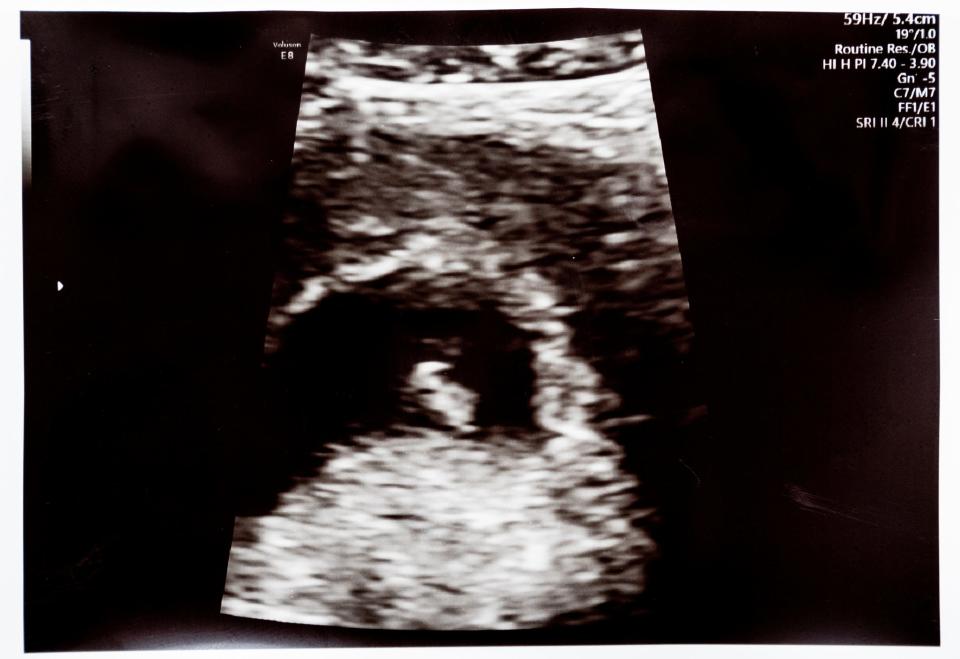Iowa medical board has finalized rules for state's 6-week abortion ban. What they say:
The Iowa Board of Medicine has approved administrative rules to enact the state's 6-week abortion ban — should the courts allow the law to go into effect.
On Thursday, Iowa's top medical board unanimously approved revised guidelines for how doctors can comply with the "fetal heartbeat" law's narrow exceptions for rape, incest, fetal abnormality or to save the life of the pregnant person. The law bans abortions when cardiac activity can be detected in the pregnancy, which can occur at about six weeks.
"I know that this was a much longer process than we usually need to follow for rulemaking, but we appreciate all the great input we receive from the board and appreciate how we're getting to help our physicians and their patients throughout the state by making things clear for them as we go forward,” Leif Olson, chief deputy attorney general for the Iowa Attorney General's Office, said during Thursday's meeting.
More: What is a 'fetal heartbeat?' What you should know about Iowa's new 6-week abortion bill
Board members did make some changes to the guidelines following a public hearing to amend some of the language and to clarify certain requirements for doctors. However, the guideline's requirements largely remain unchanged from the proposed draft rules introduced to the board in November, when members began their rulemaking process.
Doctors must still meet certain conditions in order to provide an abortion under the law's exceptions, which includes the requirement to gather facts about an alleged rape and incest and to obtain a signed certificate that the information is true.
There's still little insight from these rules on what penalties doctors could face if they violate the law, a concerning aspect for those on both sides of this issue.
The Board of Medicine's rules now goes before the Iowa Legislature's Administrative Rules Committee, which would vote on final approval. If the courts allow the abortion law to go into effect, those rules will then become enforceable by the state's medical board.
When will Iowa's 6-week abortion ban go into effect?
Iowa's abortion law has not gone to effort due to an ongoing legal challenge from opponents. Enforcement of the law was blocked by a Polk County district court shortly after the law was signed into effect by Gov. Kim Reynolds in July.
The Iowa Supreme Court is expected to hear arguments over enforcement the abortion ban sometime this year, with a decision expected by the end of June 2024.
While the new law remains tied up in the courts, abortion remains legal in Iowa up to 20 weeks of pregnancy.

Maggie DeWitte, executive director of Pulse Life Advocates, applauded the new rules from the state's medical board, saying she is happy the rule-making process has been completed in the even the Iowa Supreme Court does allow the ban to go into effect.
"We appreciate the Board of Medicine going through in recommending these rules ahead of the ruling from the Iowa Supreme Court," DeWitte said. "This will allow the process to go forward quicker. Bottom line, more Iowa lives will be saved by enacting the heartbeat law.”
Iowans For Health Liberty, a physician-led political action group that opposes the law, denounced the law for what they say will cause detrimental outcomes for the state. That includes worsening health outcomes for patients, as well as challenges in recruiting doctors to provide care in Iowa, they say.
"Physicians in Iowa seek to provide empathetic and personalized care for their patients, promote positive health outcomes and offer standard treatments we have been trained to provide," according to a statement. "Physicians do not seek to withhold care while waiting for our patients to fully miscarry or for their health to decline enough to qualify for treatment. The population of Iowa deserves better than arbitrary rules that do not promote the health and well-being of pregnant patients."
What changes did the board make to the rules?
The most significant change the board made to the proposed draft rules was on the requirement that doctors obtain certain information to determine whether the pregnancy is the result of rape or incest, if cardiac activity is detected.
Under the first draft of the rules, doctors would have been required to gather specific details from the patient, including the date the reported rape or incest occurred and the date that act was reported to another party, such as law enforcement or a physician.
However, board members had expressed concern about these requirements during a January meeting, stating this type of information gathering was not within the scope of a typical provider-patient relationship. Opponents to these rules also expressed similar concerns, stating such a requirement could erode trust with patients and force doctors to a legal standard they typically don't need to follow.
The Board of Medicine amended the rules to allow physicians to obtain this information from other sources, such as the patient's parent or guardian, and to clarify that the physician is not required to explicitly ask the patient those questions.
"The rule does not tell the physician how to obtain the information in response to the board's concerns that the way it was phrased before made it look like these were specific questions that had to be asked of the woman," Olson said.
The new rules also clarify that there's no burden on the patient to verify the information they've been provided is accurate, instead stating the physician may rely on a "good-faith assessment that the information is true."
Those details must be documented in a patient's medical record, the rules state.
The board also amended the rule's language to address concerns they had about specific terminology used in the initial draft. During their January meeting, board members took issue with rule's use of the term "woman," stating physicians would not use that term to describe a minor who had become pregnant.
The new rules clarify that "woman" refers to any female individual regardless of age.
The board also requested an edit on the term "unborn child," stating last month it was not an appropriate medical term and they believed "embryo" or "fetus" would be more accurate. The new rules doesn't eliminate "unborn child," but defines that term using medical terminology requested by the board.
The new rules also change the method to determine whether cardiac activity is present in a pregnancy. Doctors must use a transabdominal pelvic ultrasound "in a manner consistent with standard medical practice.
Iowans for Health Liberty said in a statement the board took a good step in adapting the language of the administrative rules to standard medical care, adding that the board "has taken an important stand to protect the physician-patient relationship."
"However, this does not change the fact that the restrictions the bill outlines infringe on the rights ofpregnant women to control their reproductive health and the ability of physicians to providestandard of care medicine. Exceptions for abortion care are difficult to access, delay care and resultin maternal death and disability," the statement reads.
New rules still leave questions on other exemptions, possible penalties unanswered

The board did not make any changes to the rules that follow the provision of the law that allows abortion to take place in cases of fetal abnormality incompatible with life. Doctors providing this care in those cases must sign a certificate and document their support of a fetal abnormality, including any tests or procedures to determine that diagnosis and a description of why the abnormality is incompatible with life.
It also offered no insight on how doctors can comply with the provision of the six-week ban that allows abortions to be provided in cases of cases of medical emergency.
The board also did not offer any addition insight on the possible penalties that doctors from the Iowa Board of Medicine. The guidelines simply say failure to comply with the law or the administrative rules "may constitute grounds for discipline."
The Iowa Board of Medicine is the sole authority in the state to enforce the six-week abortion ban. Under existing administrative rules, the board has the authority to revoke or suspend a physician's license or impose civil fines up to $10,000, among other disciplinary actions.
DeWitte raised concerns on the lack of specific language on potential disciplinary action, saying her anti-abortion group hopes to see physicians who violate the law face severe penalties, such as removal of their medical license.
“If you’re going to have a law with no punishment, it defeats the purpose," DeWitte said. "If you’re going to have a law and then there’s no consequences for breaking that law, there’s no teeth to it. We want to ensure that there is appropriate punishment for breaking this law because in the end, a life would have been taken. And that’s pretty serious.”
Opponents of the law say the threat of losing their medical license or other serious repercussions could create uncertainty in when doctors are allowed to intervene, particularly in cases of medical emergencies. Some have speculated doctors may put off abortions, putting their patients at risk.
Michaela Ramm covers health care for the Des Moines Register. She can be reached at [email protected], at (319) 339-7354 or on Twitter at @Michaela_Ramm
This article originally appeared on Des Moines Register: Iowa medical board approves rules for state's 6-week abortion ban
Solve the daily Crossword

